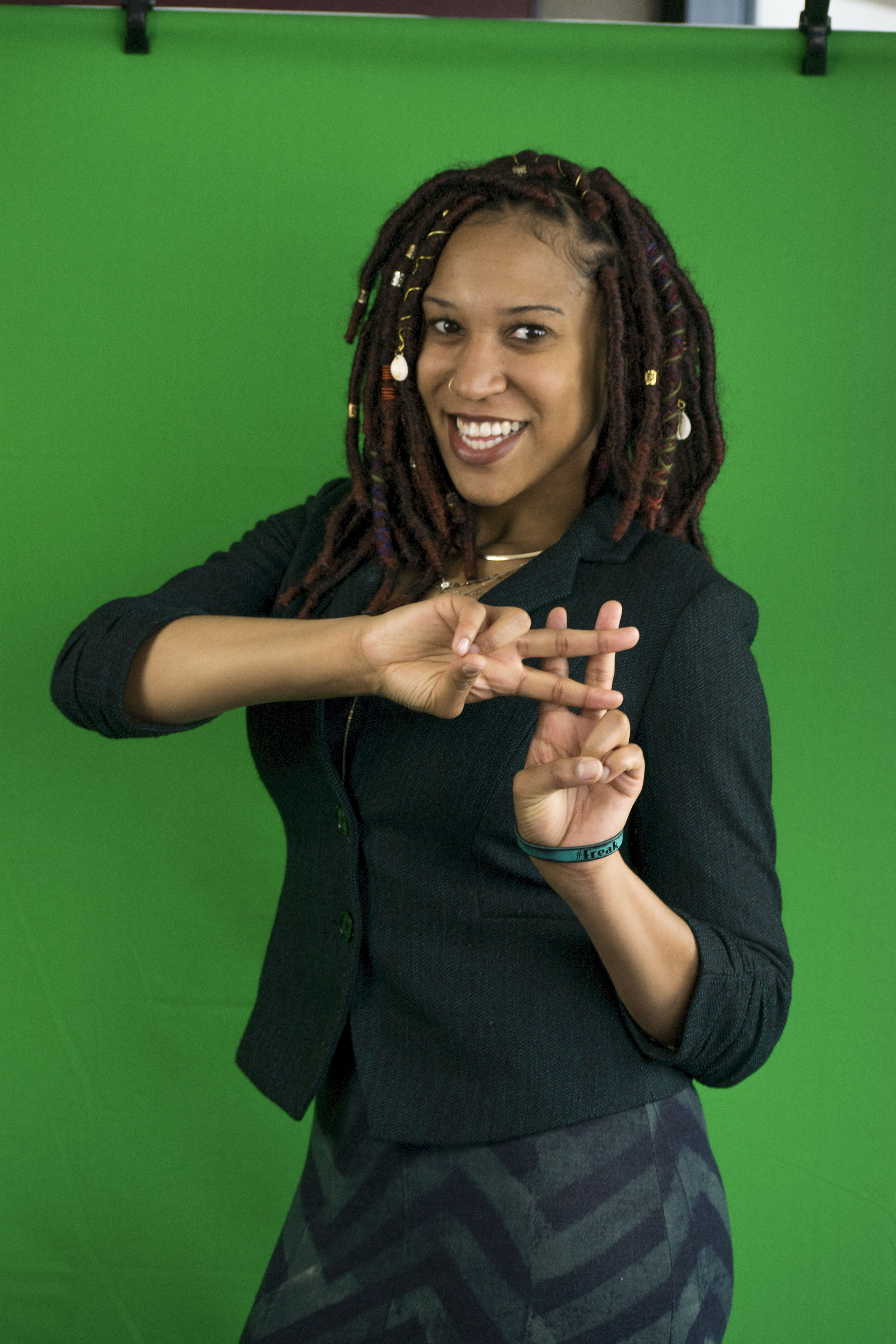In a time when women are truly finding their strength and voice in a world of misogyny, I have the true privilege to write about a strong, proud and incredible young lady. She has just set a record not only in the world of academia but in the world of women fighting for their own independence and sense of self.
Taylor Michael Curtis is a professor of psychology, as well as African American psychology at Sinclair College. She’s been teaching at Sinclair for the past five years.
What makes her so unique isn’t the fact that she tries to empower her community through the teachings of her students or her status as an accomplished scholar. It’s not even the fact that she sings in a local band called Freakquency.
What makes Curtis stand out is the fact that she is one of the youngest African American females to be offered tenure from any collegiate institution in the nation. She is the youngest African American female to obtain this accomplishment at Sinclair.
With this, she is joining the ranks of several other successful African American women in academics, such as Eve J. Higginbotham, Johnnetta B. Cole and Amanda Aiken, all leaders and pioneers in education.
 After being homeschooled from pre-kindergarten to 12th grade, Curtis started her academic career at Sinclair at the tender age of 13 and was one of the youngest graduates of Sinclair at age 16.
After being homeschooled from pre-kindergarten to 12th grade, Curtis started her academic career at Sinclair at the tender age of 13 and was one of the youngest graduates of Sinclair at age 16.
She graduated from high school and college simultaneously and earned an associate degree in liberal arts with an emphasis in psychology.
Following this, she transferred to Ohio State University and graduated with a bachelor’s degree at the age of 20.
Knowing she wanted to continue even further on her academic path, she returned to Sinclair to participate in their Grow Our Own program. The program was designed for minorities and other underprivileged academics who have a bachelor’s degree. They sign a three-year teaching commitment after completing their master’s degree.
The purpose of the program is to groom and grow a diverse arsenal of faculty to relate to the multicultural range of students that attend the college. After receiving her master’s degree in psychology from the Chicago School of Professional Psychology, Curtis continued on the path to becoming a tenured professor.
However, teaching isn’t the only interest Curtis has, as she is active in the music scene and works in modeling when she isn’t in the classroom.
Even though Curtis is a young professor, she has a clear idea and stance on what works in academia and what doesn’t.
Curtis knows what works in a classroom, and stresses the importance of communication, recognition and realization.
She believes that “open communication initiatives that are inclusive to minorities and affect the disparities they face, such as completion gap programs, proper knowledge of resources, education for faculty of bias treatment toward students and microaggressions” is the path towards connection between those within the entire campus, including staff, students, clubs and community.
She loves the many events at Sinclair that celebrate student success and diversity such as pre-Kwanzaa, Kente Stoles and the international education dean’s list ceremony.
 However, she has witnessed what doesn’t work in academics, and states that “Inequality and disparity in minority groups starting at preschool to the collegiate level” is a problem.
However, she has witnessed what doesn’t work in academics, and states that “Inequality and disparity in minority groups starting at preschool to the collegiate level” is a problem.
“Current public education doesn’t seem to be preparing many for college, and on the collegiate level, institutions seem to stifle necessary conversations about important topics in society,” Curtis said. “We need these conversations to promote global citizenship and impact change in the community.”
Curtis feels that the fix to these problems is a simple but difficult one. She believes that a “systematic change in the process of education starting with a better college relation with public and private schools when available that fosters dialogue about societal issues and attempts to make strides in helping all achieve academic success,” is the key.
Curtis believes that the implementation of these changes will have a positive effect on the academic world at large.
“If we can find the resolve to make these changes then I believe that we will be creating a truly incredible future not just for our students, but for the world and those who inhabit it,” Curtis said.
Curtis still strives to be the best educator possible by following up with her clinical doctorate degree to practice psychology. She will try to alleviate those with psychological stress and help them become their true better self, while inspiring the next generation of young African American females, so that they too can champion the cause of making the world a better place through education.
Justin A. Baker
Staff Writer

